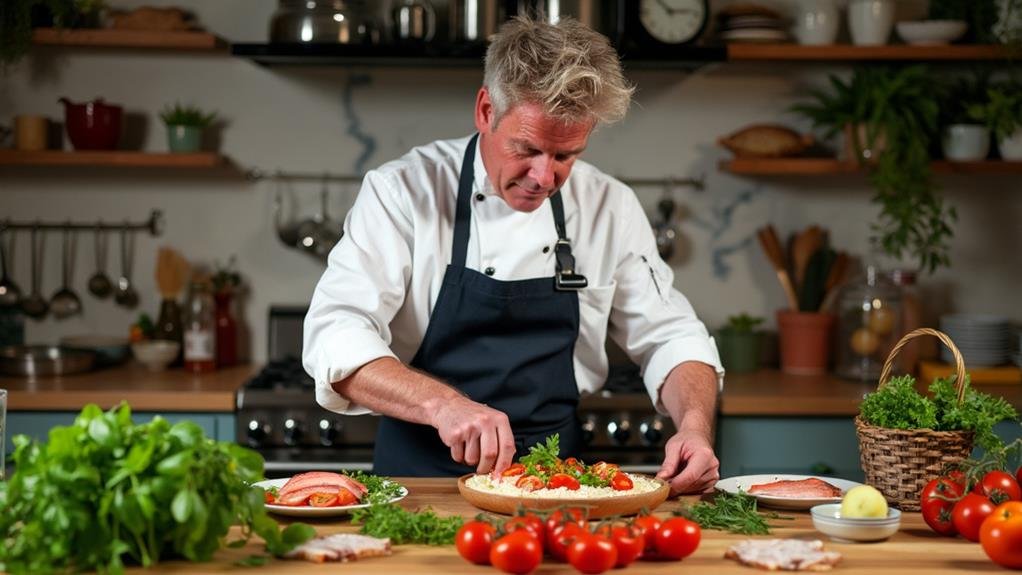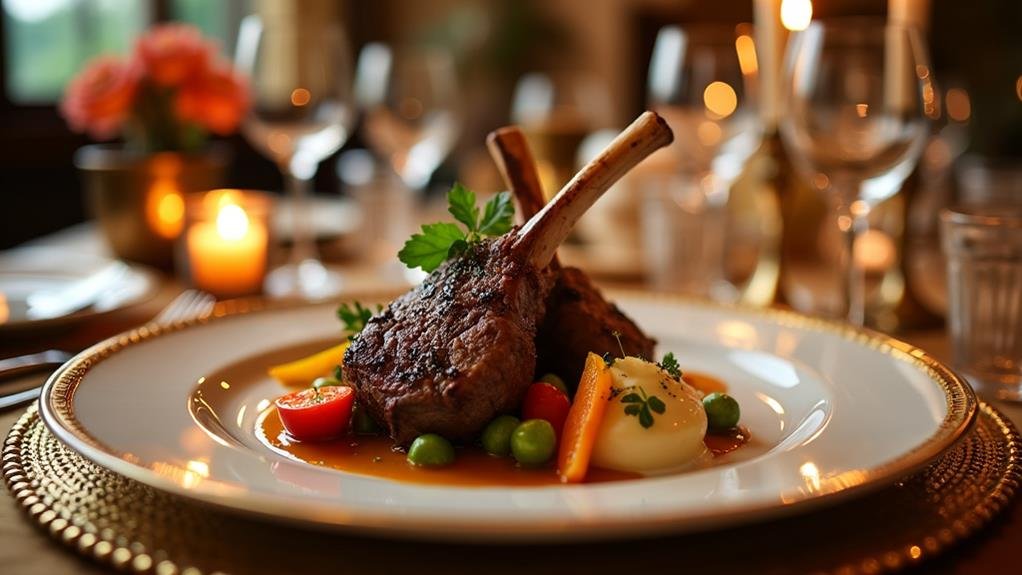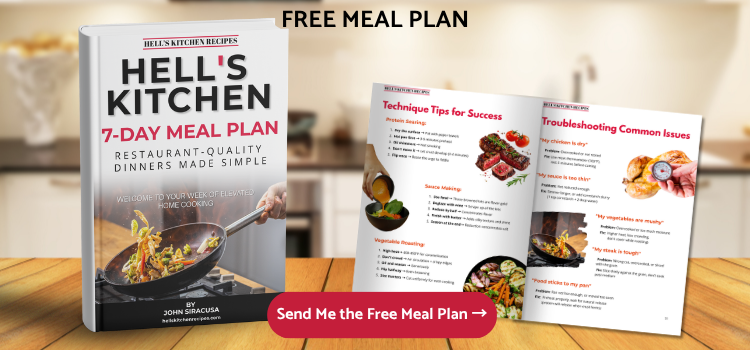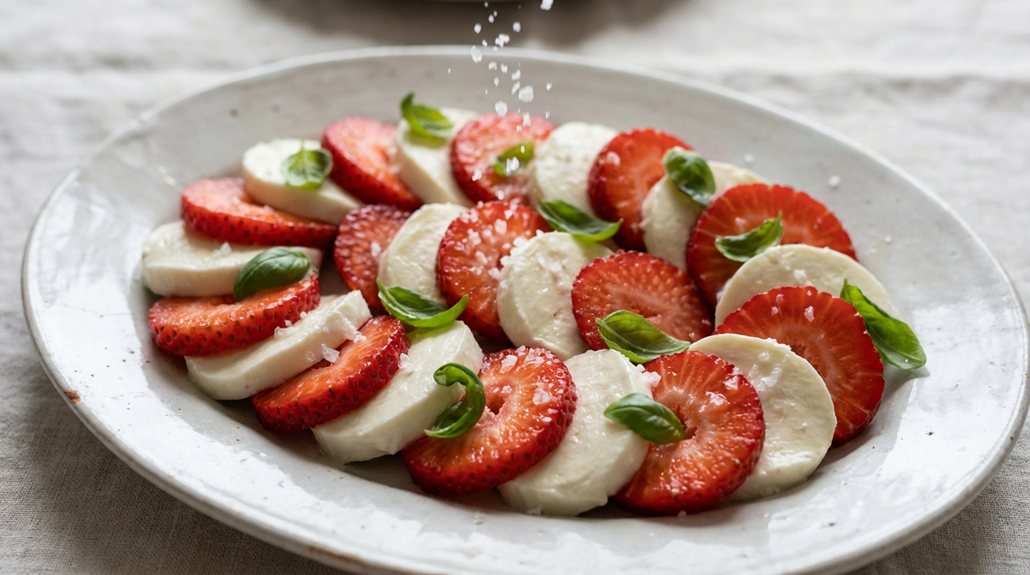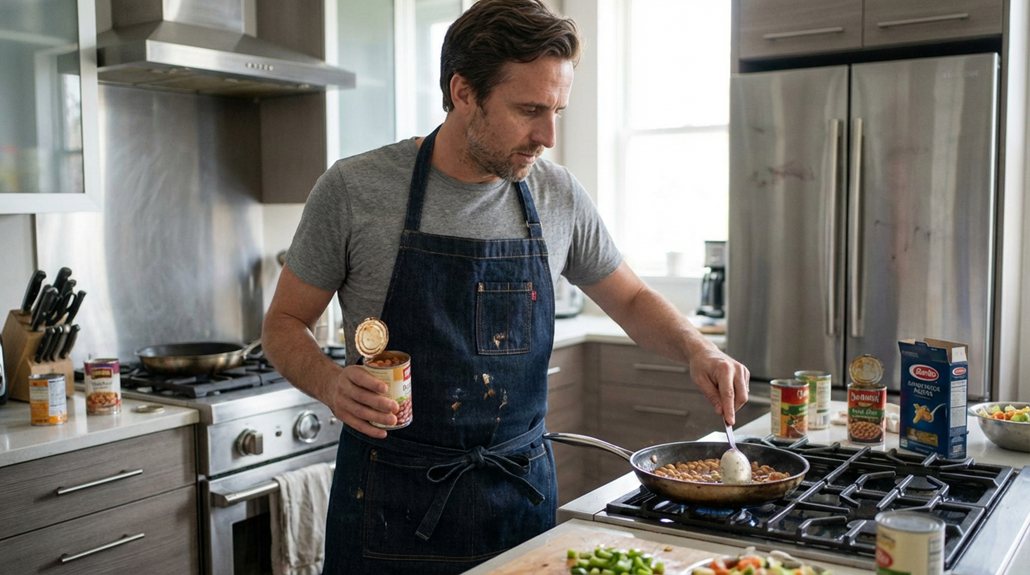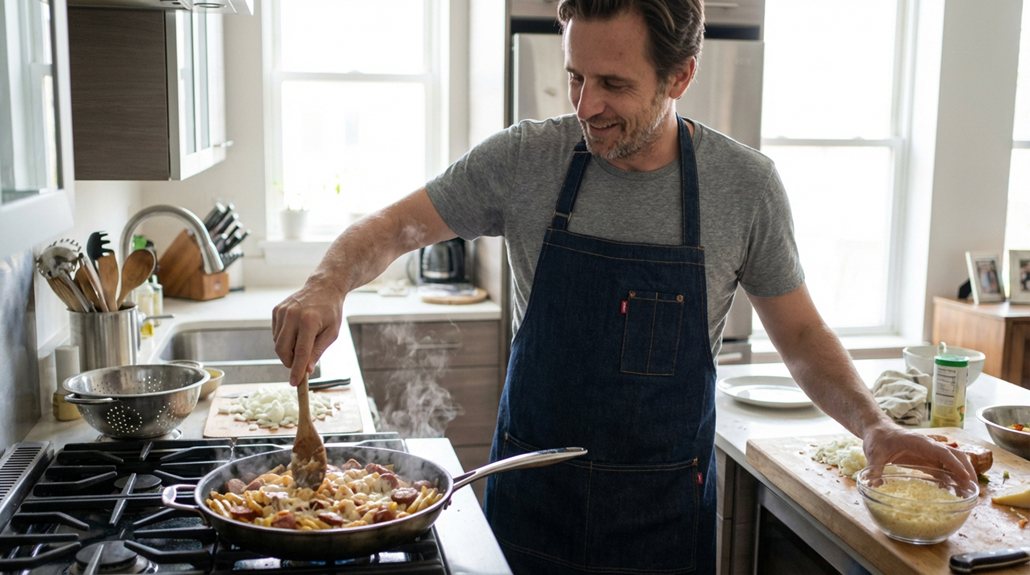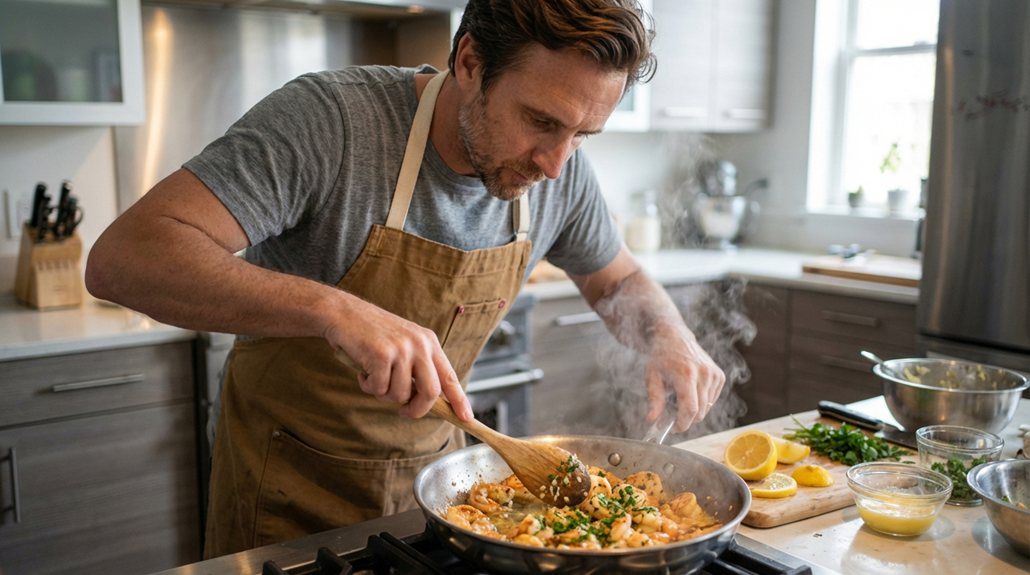Gordon Ramsay prefers quick meals to lengthy sit-down lunches because his packed schedule demands efficient time management and high energy. As a renowned chef in the hospitality industry, he faces challenges in finding time for full meals, often opting for small, nutritious snacks throughout the day. This approach not only sustains his energy levels but also allows him to maintain focus during intense culinary tasks. Lengthy dining experiences can lead to sluggishness, making quick meals a practical choice for someone with a jam-packed agenda. Understanding his perspective on dining will reveal more about how professional chefs balance speed and flavor.
Gordon Ramsay's Busy Schedule
In the whirlwind of Gordon Ramsay's hectic agenda, effective time management is essential. He frequently chooses quick meals, allowing him to sustain his energy while balancing numerous commitments. With days filled with culinary tasks and overseeing various kitchens, Ramsay recognizes the significance of optimizing every minute. This reality means that lengthy dining experiences are impractical; they are a luxury he cannot indulge in. His commitment to excellence, as demonstrated by his endorsement of HexClad cookware, showcases his pragmatic approach to both cooking and dining.
Instead, his eating habits center on efficiency and practicality. He begins his day with a hearty bowl of oatmeal, establishing a solid nutritional base, while regular taste tests throughout the day help curb his hunger. When he finally enjoys dinner, it's often a communal occasion, featuring appetizers and desserts, rather than an extended meal.
This dining strategy not only energizes his fast-paced lifestyle but also highlights how hospitality experts adapt to their rigorous professions. By embracing swift meals, Ramsay embodies a mindset that values freedom and flexibility, enabling him to excel in the dynamic culinary industry. So, if you find yourself in a similar situation, taking inspiration from Ramsay's approach can assist you in managing your own busy life with greater ease.
Challenges of Sit-Down Meals
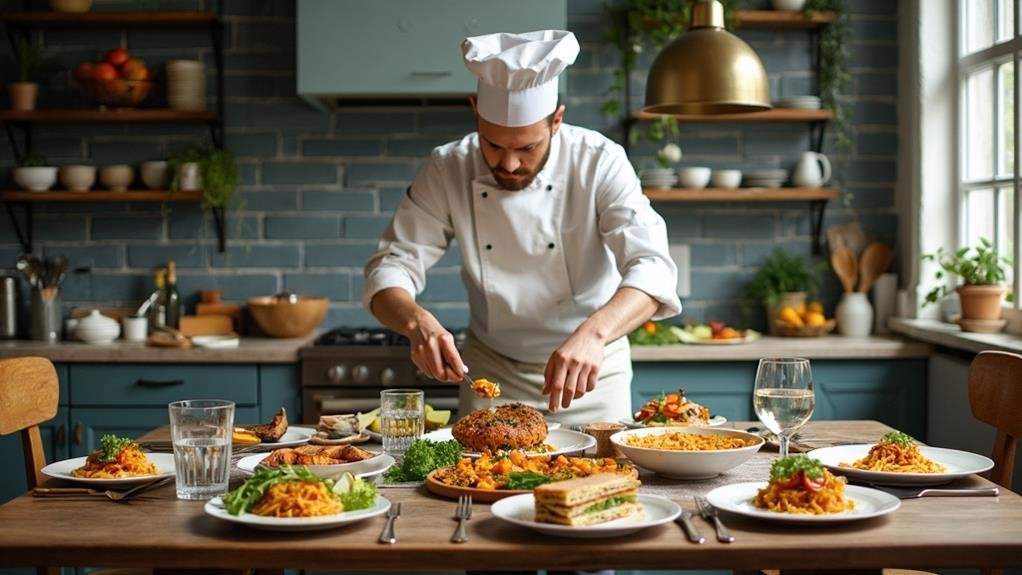
Finding time to enjoy a sit-down meal poses significant challenges for professionals in the hospitality sector, including renowned chef Gordon Ramsay. His hectic schedule often leaves little room for a leisurely lunch. In a high-pressure environment, every moment is precious, leading many, including Ramsay, to opt for rapid snacks instead of full meals. After enjoying a meal, Ramsay frequently returns to his culinary duties, limiting opportunities for relaxation.
For dedicated chefs like Ramsay, utilizing versatile kitchenware, such as HexClad cookware, simplifies the preparation of quick, nutritious dishes. Rather than indulging in lengthy dining experiences, Ramsay prefers sampling small plates throughout the day, a method inspired by the traditional Hong Kong practice of multiple small meals. This approach keeps him energized and focused, avoiding the sluggishness often associated with a heavy sit-down lunch.
In the hospitality field, free time is often dedicated to responsibilities beyond dining, making the enjoyment of a meal feel like a rare luxury. Consequently, the challenges associated with sit-down meals arise from the industry's demands, where efficiency takes precedence over enjoyment, rendering quick and nutritious options essential rather than optional.
Eating Habits in Hospitality

Hospitality professionals like Gordon Ramsay often adapt their eating habits to fit demanding schedules. Many in the culinary industry prefer small, frequent meals over traditional sit-down dinners. This choice becomes a necessity due to hectic days filled with cooking tasks and management responsibilities. For example, the meticulous preparation of dishes like Ramsay's Roast Chicken Stuffed with Chorizo demonstrates how quick yet flavorful meals can be crafted efficiently in a bustling kitchen.
Ramsay highlights the significance of snacking throughout the day to maintain energy levels and focus. He often draws inspiration from Hong Kong's culture of consuming multiple small meals, which aligns seamlessly with a fast-paced lifestyle. Instead of indulging in a full-course dinner, he enjoys appetizers and desserts whenever time permits.
This eating approach mirrors the reality of the hospitality industry, where time is precious and every moment counts. By opting for quick bites, culinary professionals stay nourished and remain agile, ready to tackle the day's challenges. Ultimately, these eating habits are a clever adaptation to the profession's demands, providing flexibility while ensuring sustained energy levels.
Importance of Energy and Activity

High energy levels are crucial for professionals in the hospitality sector, particularly for culinary experts like Gordon Ramsay. In the bustling atmosphere of a restaurant kitchen, staying active and alert is necessary to fulfill job demands. Ramsay employs a strategy of consuming small, frequent meals throughout the day, akin to utilizing a powerful Vitamix blender to swiftly prepare healthy smoothies. This approach helps him sustain energy, enabling him to efficiently handle the challenges presented by a busy kitchen.
Influenced by Hong Kong's culture of enjoying multiple small meals, Ramsay advocates for this eating pattern to support an energetic lifestyle. Rather than waiting for a lengthy meal, he opts for snacking on small portions, which helps control hunger while promoting productivity. Each bite serves as a source of energy, allowing culinary professionals to navigate long hours without experiencing fatigue.
Time Management in the Industry
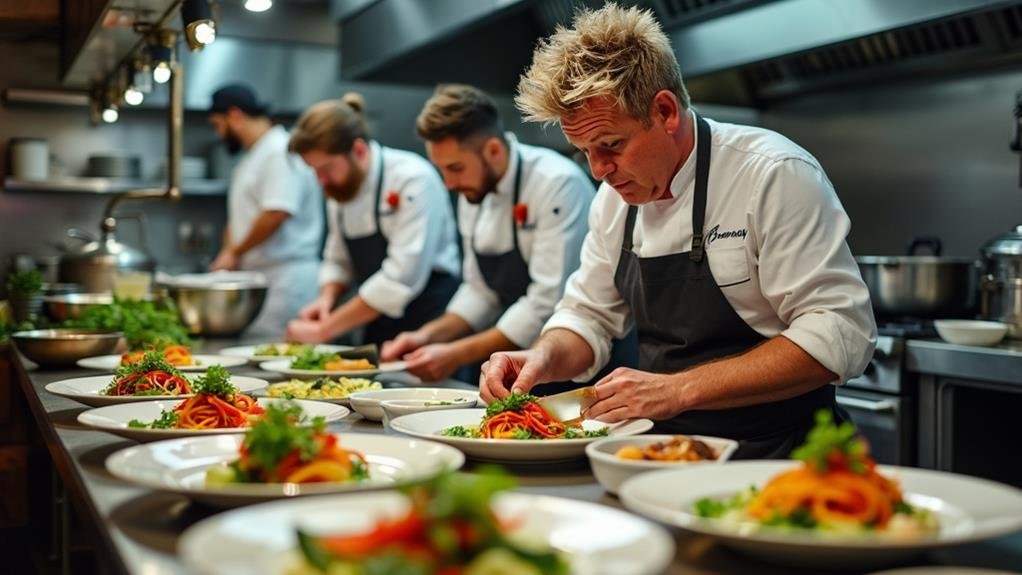
In the dynamic realm of hospitality, effective time management is crucial for achievement. Renowned chefs like Gordon Ramsay operate on tightly packed schedules, leaving minimal time for leisurely meals. Balancing professional obligations with dining out poses a notable challenge. Ramsay's strategy illustrates this reality; he chooses quick, small meals that seamlessly integrate into his hectic day.
This inclination is not merely about convenience; it serves as a pragmatic solution to the rapid demands of the industry. Regular small meals sustain energy levels during extended shifts, enabling chefs to remain alert and focused. For Ramsay, pausing for a full meal often means forfeiting precious time that could be spent perfecting culinary creations or overseeing kitchen operations.
Additionally, the culture of rapid eating resonates with the habits of numerous hospitality professionals. They frequently adopt practices observed in cities like Hong Kong, where multiple small meals throughout the day are customary. This dining approach not only fuels a high-energy lifestyle but also complements the unpredictable nature of restaurant work. In this sector, time is of the essence, and mastering it is essential for success.
